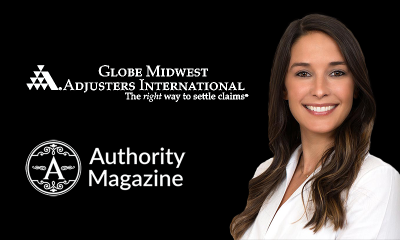Policy Limits and Coinsurance: Helping your client avoid painful insurance claim penalties
As trusted advisors to our clients it is our job and mission to guide clients to ensure they are protected and have the tools necessary to flourish in their businesses. However, if you have practiced long enough you will inevitably experience a scenario where a client comes to you for help to “fix something” after they made a costly assumption! Though Trusted Advisors are held in high esteem, it doesn’t necessarily mean you will always have a ready solution for your client’s predicament.
In the case of procuring property insurance, it is the proactive measures, namely a conversation with your client on certain issues, like understanding what to ask when seeking business insurance coverage, that might serve as the crystal ball your client ultimately needs to avoid painful penalties in the event of an insurance claim.
An Inherently Shaky Stage
Let’s dive deeper into the potential problems your client may experience if they secure business interruption/loss of income coverage without a conversation with you, their CPA.
Your client’s insurance agent (and the underwriting department of the carrier) is tasked with finding the right balance between their determination of adequate coverage and a premium amount your client is willing to pay. After all, the insurance agent is in the business of selling insurance.
Right out of the gate we have a scenario where the insurance salesperson inherently has to consider pricing, sometimes above all else, in order to “make the sale.” However, in doing so, your client unknowingly can leave themselves financially exposed; especially in the event of
a natural or man-made disaster that causes an interruption to their business for which they have to make a business interruption insurance claim.
There are a couple of common ways that agents can reduce business income coverage premiums: one is by establishing a lower policy limit and the other is by including a co-insurance clause. If your client does not fully understand how these policy mechanisms may impact a future claim, there is a good chance some of their concerns may be directed to you — their trusted advisor, after the fact.
Questions to Ask in Establishing a Policy Limit
Let’s look a little closer at establishing a policy limit. On its face, determining a policy limit (per loss) seems reasonable and should not be fraught with problems. As is customary, policyholders are generally asked to provide financial information to their agents so the insurance company underwriter can assess the risk factor of your client and provide what they think would be a suitable measure of the risk. The process seems a little unilateral, don’t you think? Should a policyholder be solely reliant on the carrier’s employee to make these decisions? Wouldn’t it be more beneficial for your client to paint the most accurate “business financial picture” they can in order to help the agent better outfit them?
The Valuable Insight of the Trusted Advisor
Let’s consider how the policyholder, or perhaps more appropriately, you as their trusted financial advisor, can pro-actively help determine what information would be helpful for your client to provide in order to more accurately quantify the covered risk.
- Is your client experiencing an uptick in business due to market conditions?
- Have advertising dollars been invested that are turning into increased sales?
- Was a production line discontinued from the previous year?
- Does your client realize any income based on a multi-year agreement? A subscription basis?
- Does your client have quotas and/or penalties within the confines of their contracts with customers or vendors?
The answers to any or all of the above questions can have a material impact on the risk of lost profit from one year to the next and it is essential that the agent and in turn the carrier’s underwriter understand the nuances of your mutual client’s business when valuing the risk of coverage. Blindly submitting historical financial data is the most basic premise of forecasting future risk. Your participation in providing not just financial information but advising on additional material factors will be of significant value to your client.
Understanding Co-Insurance
Another provision that is frequently inserted into insurance policies in an effort to reduce premium payments is the co-insurance clause. Co-insurance is a clause that states the policyholder will share in the amount of the loss should adequate limits of coverage not be in place at the time of the loss. Unfortunately, the computation used to determine compliance with this clause is frequently misunderstood because the net result is a lower premium without a full appreciation as to how it may impact your clients recovery following a future loss. From my almost 30 years of experience, it almost never ends well for the policyholder when a co-insurance clause is introduced into business income coverage. If your client is offered a co-insurance clause, it is advisable that your client understands before coverage is placed how this clause will impact their business interruption claim.
The formula for co-insurance recovery is:
(Value of Insurance Carried/Value of Insurance Required) x Compensable Amount of the Loss
Unless the amount of insurance in place is enough to comply with the co-insurance clause, there will be a penalty assessed on the insurance proceeds from the loss; in other words, your client could be receiving less of a payout than anticipated. In nearly every instance that our team has seen a co-insurance penalty imposed, the policyholder was never entirely clear on how this clause was going to impact their recovery. Until it did. And it was usually painful!
Was it avoidable? Certainly. With a thorough understanding of the potential impact of financial information being provided to determine the risk and the policy limits, the carrier and the policyholder could end up on the same page. And you can help guide your client to the right place.
The bottom line is this: if you are asked to assist with placing or changing your client’s insurance coverage, there is more you can offer in addition to simply providing the historical financial data. Asking the right questions so your client provides the right information to their insurance agent could make all the difference in keeping your client safe from painful penalties at a time when recovery is at stake in every way.
Download this blog as a PDF by clicking here.















